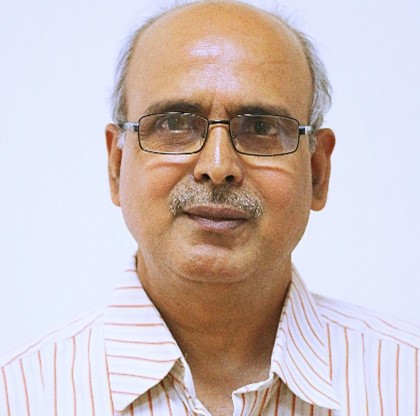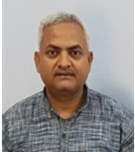
Last date for nomination: January 25, 2026
Note: Nominations will be reviewed only after the last date of nomination (Nov 25). We will reach out to you after the review process.
About This Course
Course Objective
The overarching objective of the course is to develop a vision of education. This will be achieved through the critical analysis of the new National Curriculum Framework for School Education (NCFSE), 2023. Specific objectives are to understand the.
- Nature and concept of education;
- Relationships between human nature, society and education;
- Social purposes and aims of education in a democratic society;
- Relationships between aims of education and the curriculum.
Course Outcomes
The outcomes include participants' comprehension of the nature and concept of education, the interconnections between human nature, society and education, as well as the objectives of education and its correlation with the curriculum. Armed with this knowledge, participants will engage in introspection regarding their work plans and activities within the field, ultimately contributing to societal advancement. Additionally, they will gain the ability to scrutinize policy documents from philosophical and critical perspectives.
Pre-requisites
This course is ideal for those aiming to grasp educational thought and practices from the first principles. This includes educators, teachers, education administrators, coordinators, and leadership team or program team members of NGOs, etc. While individuals with three to four years of education experience or those who have studied the field will benefit the most, it is also valuable for recent graduates considering a career in education. However, anyone who has a keen mind and is interested in the rigorous study of education would benefit and enjoy this course. There is no formal requirement of educational qualifications. However, the ability to read, write, and understand the English language is a must, with an undergraduate degree. Another prerequisite for this course is self-motivation.Expected Commitment
Participants enrolled in the 6-days long face-to-face course are expected to dedicate a total of 65 hours toward their learning expenence This includes 42 hours of in-class sessions spanning seven (7) hours each day, supplemented by an additional 12 hours (2 hours per day) for reading and preparation. Additionally the participants are required to allocate three (3) hours toward pre-course tasks, along with eight (8) hours for course completion assignments.
Course Details
Education is a deliberate process aimed at developing individuals' minds and abilities through leaming and teaching. The word deliberate indicates that there are certain aims of education that spell out what capabilities are to be developed, and therefore, what ought to be taught and leamed, so that the spelled-out capabilities may be attained. Educational aims reflect our views on human nature, our imagination of a good human life, and a desirable society, among other things The articulation of educational aims implies the development of understanding and skills relevant to society's desired ideals Teaching and learning processes in classrooms are meant to achieve the same Thus, understanding education requires much more than just the syllabus, textbooks and classroom activities.To be able to engage in educational practice in a self-aware manner, one must deliberate upon several crucial questions. What is education? What ought to be the aims of education? On what criteria these aims should be determined? Why human beings must be taught? How do children learn? What should be the basis for deciding what should or should not be taught in schools? How are students taught and why in that manner? What is worth teaching? What is meant by saying that all children ought to be given equal educational opportunity? and so on.
Some foundational principles are required to examine the concepts and theories that form the fundamental basis for constructing answers to such questions as well as for all educational practices. Without a grasp of the theoretical underpinnings of education, any work or activity undertaken in the name of education can only be a random act picked up on hunches. Hence, it is essential for individuals actively engaged in educational practice at any level to understand the fundamental principles of education.
In this workshop, our goal is to delve into these aspects by integrating them with the recently introduced National Curriculum Framework for School Education (NCFSE) 2023. We aim to examine how the framework incorporates recommendations concerning education, society, aims of education knowledge, school subjects, and teaching methods, and how these are applied in practice. The course, thus, will examine what principles and assumptions NCFSE 2023 is based on.
Course Dates: March 12-17, 2026
Location: Digantar Campus, Jaipur
About The Resource Organization
Digantar Shiksha Evam Khelkud Samiti, a non-profit founded in 1978, is dedicated to educational innovation and social upliftment. Key objectives include running schools, advancing educational thought and practices, conducting research, and promoting cultural and social development. Currently, it operates two non-fee-paying schools in Jaipur, Rajasthan, serving marginalized communities.
Digantar's approach integrates theory and practice through The Academic Resource Unit (TARU) and Digantar Publications. TARU offers capacity building programs for educators, emphasizing the importance of grounding practice in educational principles. The organization advocates for quality education, aiming to cultivate autonomous, rational and caring democratic citizens. Its schools and various initiatives, including teacher training, research, and curriculum development, reflect this commitment.
Facilitators

Rohit Dhankar
Rohit Dhankar is the founding teacher of Digantar Vidyalaya and the founder-secretary of Digantar. He has taught Philosophy of Education at the Tata Institute of Social Sciences (TISS), Mumbai, and the Azim Premji University (APU), Bangalore, where he also served as the Director of the School of Education.
He played a key role in designing Master's in Education programmes at both TISS and APU, and was a member of the Steering Committee for the National Curriculum Framework 2005. He has collaborated extensively with NCERT and various SCERTs on school and teacher education curricula.
His writings and presentations have sparked important debates in the field of education, contributing to curricular reforms in school and teacher education. A pioneer of independent learning for children in India, he has developed alternative school structures and curricula, which have been integrated into various educational programs and government systems.
Currently, he is leading the transformation of Digantar Vidyalaya to expand the reach of self-paced, conceptually grounded pedagogy, with the aim of integrating it into mainstream schools rather than limiting it to small alternative institutions.

Rajesh Kumar
Rajesh has been actively engaged in the education sector for more than four decades. He has worked as Associate Professor of English Language and Literature in various colleges and universities, both in India and abroad. For nearly 15 years he has been actively working in organizations working for the betterment of school education in India. He has worked with Digantar as Executive Director of TARU, with Azim Premji Foundation as an Education Specialist, and with Sterlite Edindia Foundation as Academic Lead. Presently he is working as Digantar's Director His interest lies in language teaching and perspectival areas of school education along with assessment. He has conceptualized implemented and facilitated programs, courses and workshops and has been writing and developing material extensively for the purpose. He has a master's in English and a Ph.D. degree in English Language Teaching (ELT).

Mahesh Sharma
Mahesh has been working in education for more than a decade in areas connected with improvement of education in public systems. His experience covers areas of classroom teaching at primary and secondary levels, development of modules on TLMs, planning and holding workshops for teachers in various subjects (especially in science, EVS, language and math), and grassroots support to teachers in classrooms. At present, he is working as TARU (The Academic Resource Unit) Coordinator in Digantar. He has worked in Azim Premji Foundation earlier.
Academic qualifications:
- M.Sc. in Microbiology, University of Rajasthan, Jaipur
- M.A. in Sociology, University of Rajasthan, Jaipur
- B.Ed., University of Rajasthan, Jaipur
Testimonials
Utkarsh, Centre For Micro Finance
"The culture of discourse is very good. There are many opportunities to think over many moments. The course on NCFSE allowed me to develop an understanding of many words and terminology that are used in education nowadays. Words and terminologies can be used in the right place and in the right way to create a good society"
Pragya, Aga Khan Foundation
"Till now I have done the orientation of NCFSE 2023 through PPT many times for various stakeholders. But here. as I studied NCFSE 2023, and deeply understood every word and statement, it made me think about what I was doing till now."
Dinesh Choudhary, Centre for Micro Finance
"In this course, I got a chance to understand national-level documents very well. Understanding the broader objectives of education in detail and serious discussions on their critique seemed worthwhile. Otherwise, most workshops stick to activity-based learning. Nowadays, discussions on issues like perspectives are almost non-existent. In this workshop, I understood how important it is to know and understand the perspective of education!"
Jitendra, Centre for Micro Finance
"I have read many education documents before. However, in this workshop, reading and understanding in detail, I came to know how things appear in the documents. This will also help in working in the education sector and understanding other documents."


